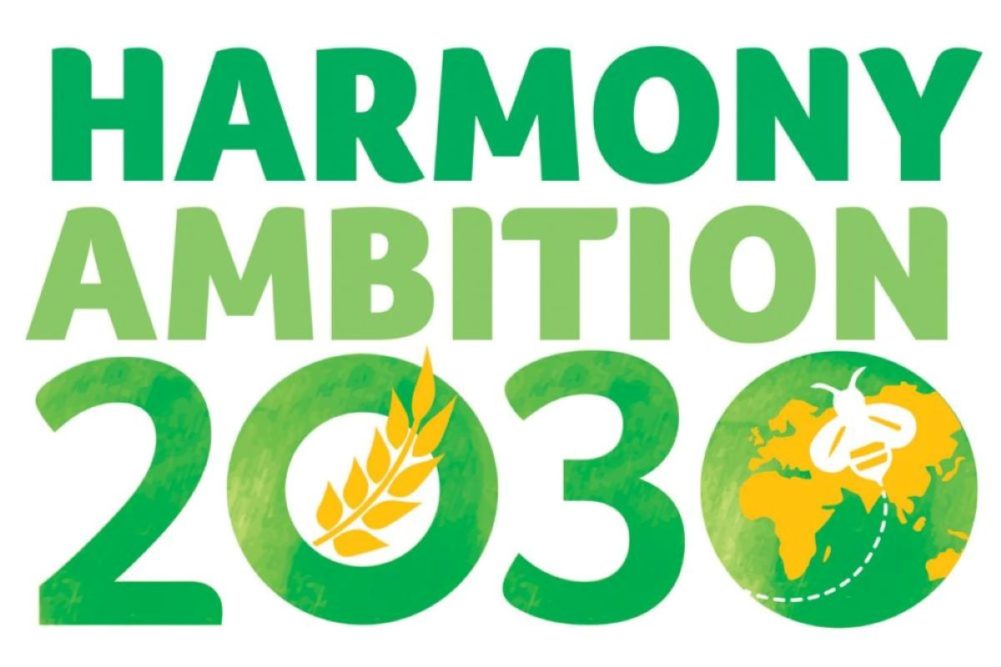ZURICH, SWITZERLAND — Mondelez International has launched Harmony Ambition 2030, the next stage of Harmony, its third-party verified European wheat sustainability program, supporting regenerative agriculture as part of the company’s goal to help mitigate climate change, support Harmony farmers and invest in sustainable wheat research.
Mondelez, Europe’s largest biscuits maker, is aiming to play a key role tackling environmental challenges in wheat farming through a robust approach to regenerative agriculture. The company has made sustainability one of the four pillars of its long-term growth strategy through a focused set of environmental, social and governance priorities.
Mondelez’s goal is to grow 100% of the wheat volume needed for its European biscuits production under the expanded Harmony Regenerative Charter by 2030.
“Harmony Ambition 2030 is a key part of our sustainability strategy,” said Peter Seymour, senior vice president of marketing and strategy, Europe at Mondelez. “We are working with local farmers and partners across Europe to help create a world where the wheat for our well-loved biscuits is grown in thriving and biodiverse environments. All this is part of our long-term business growth ambition and mission to offer consumers the right snack, for the right moment, made the right way.”
Created in 2008 with just a handful of farmers, the Harmony program now collaborates with 1,360 farmers across seven European countries, combining scale with a local partnership approach. The newly announced Harmony Ambition 2030 will accelerate this progress through an across-the-board embrace of regenerative agriculture across three key areas:
• Environment: Harmony Ambition 2030 will address climate change and biodiversity losses by implementing and strengthening farming practices, such as diversify crop rotation by including legumes to help optimize fertilizer use, the main source of greenhouse gas emissions in wheat farming. Mondelez will approach biodiversity protection in European wheat farming by widening action from Harmony plots to whole farms and from pollinators to overall wildlife. Harmony farmers also will aim to eliminate the most damaging pesticides.
• Farmers: To support Harmony farmers transitioning to regenerative agriculture, Mondelez International will create the Harmony Academy, which will provide farmers with a holistic package of digital and on-the-ground training. In addition, farmers will be equipped with digital tools to help them record farming practices, calculate environmental impact key performance indicators and improve reporting efficiency.
• Consumers: A pioneering program, run by Mondelez International’s own expert research team, will look to demonstrate that more sustainable wheat is also better-quality wheat. The Harmony program is based on more than 15 years of experience. To ensure maximum impact, it has been co-created with farmers, non-governmental organizations (NGOs), agro-ecological experts and technical institutes.
To support Harmony Ambition 2030, the program also will be guided by a newly created Harmony Council. The council will be an independent panel of scientific experts from organizations such as Arvalis (a French technical institute run by farmers), INRAE (a world leading research organization in agriculture, food and environment) and Noé (a biodiversity NGO), which will provide strategic recommendations designed to support Mondelez International’s commitment to regenerative agriculture.
The Harmony program has developed a data reporting system on farming practices, ensuring full traceability from wheat storage to plant. External Harmony audits are conducted among Harmony partners every year by independent and certified organizations such as SGS and Bureau Veritas, to guarantee compliance with the Harmony Charter.
“We kickstarted Harmony Ambition 2030 last year with a test-and-learn model in France, with partner farmers having sown Harmony wheat under our new Regenerative Charter for harvest in 2023,” said Marie Ellul-Karamanian, Harmony Program Lead. “We are excited to take the learnings from this pilot and apply them to a wider European rollout over the next few years.”




